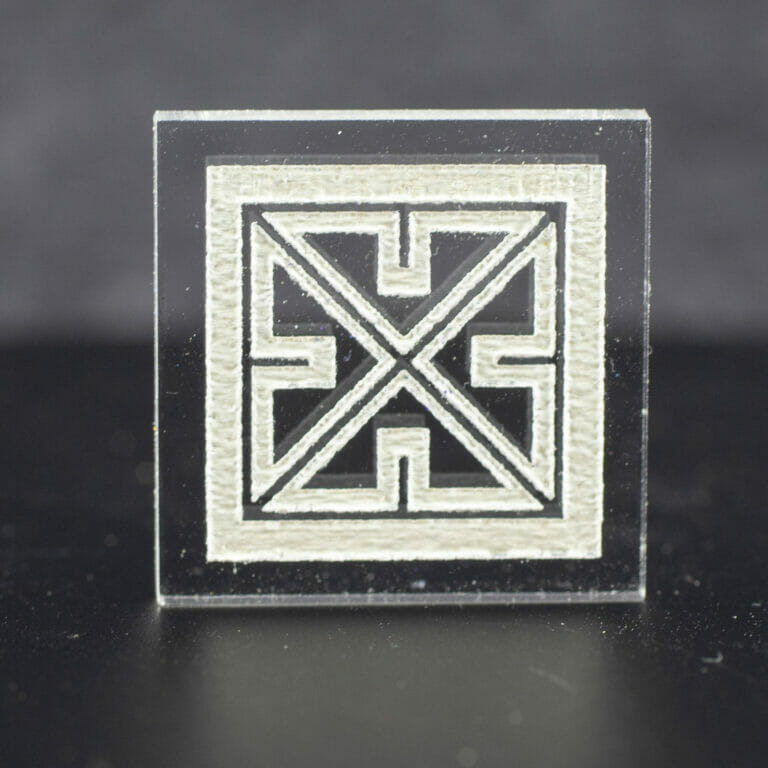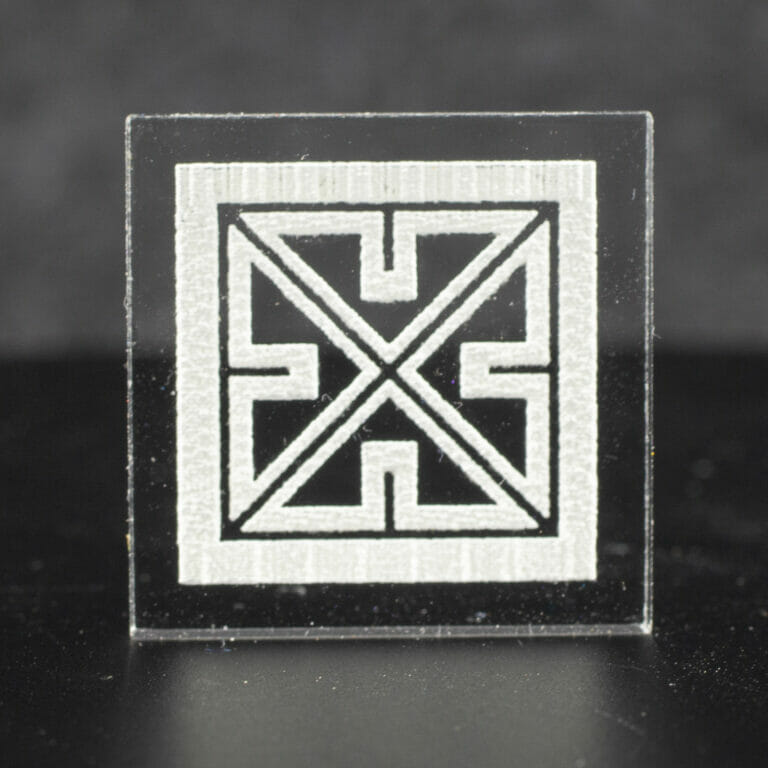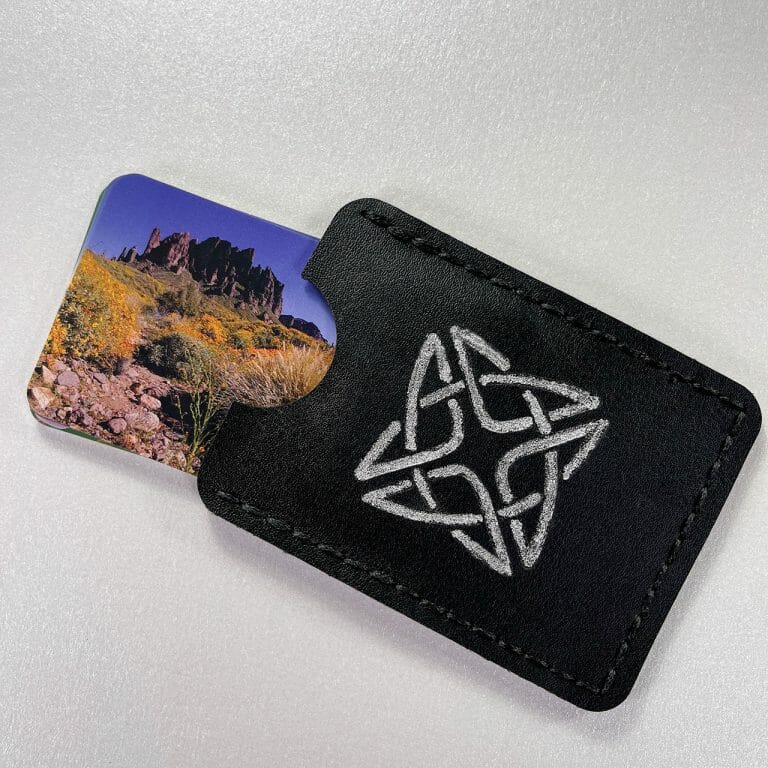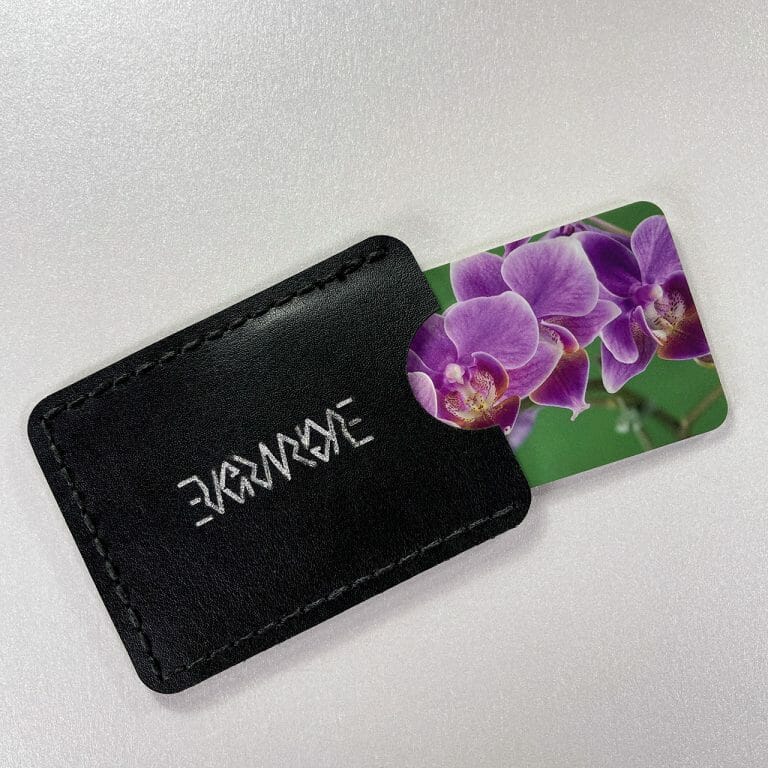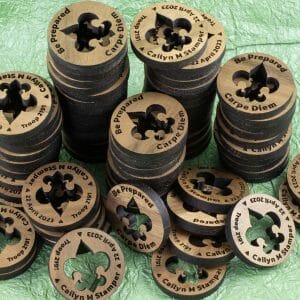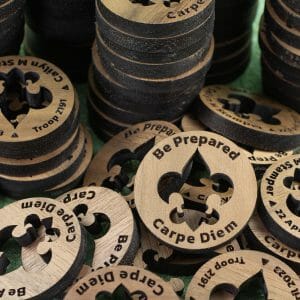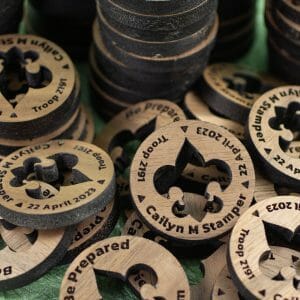Making of the Garden Lantern Electronic Pop Up Card
The Garden Lantern Electronic Pop Up Card I made in 2017 was one of the first big projects where I shot video documenting the build. There was a lot of footage and, I wasn’t very comfortable with editing videos at that point. The raw video just sat in a folder for a few years. I have done a bunch of build videos since then and, it occurred to me that I could probably manage to pull the old video clips together into a build narrative. I have been slowly putting that together in the last few weeks and, it is finally done!
As I noted in my original post about this project, this was inspired by and based on work done by Jie Qi and Natalie Freed. The Chibitronics Circuit Stickers project made everything a lot easier.
Powder Coat-Filled Laser Engraves
After seeing a video on powder-coat-filled laser engraves, I decided to try to adapt the technique for use with the studio Glowforge.
I temporarily blocked the air assist to keep it from blowing the fine powder around, which you can read more about by following the link.
The studio laser has a pretty potent external exhaust fan, which kept smoke from being an issue with the air assist restricted.
I wore a dust mask and gloves while working with the powder. I don’t think it is particularly toxic but, I’m sure I don’t need it in my lungs.
I did quite a few experiments on pre-finished 3mm maple plywood and clear acrylic. Initial results with normal initial engrave depth and, settings optimized to melt the powder coat were kind of a bubbly, uneven mess.
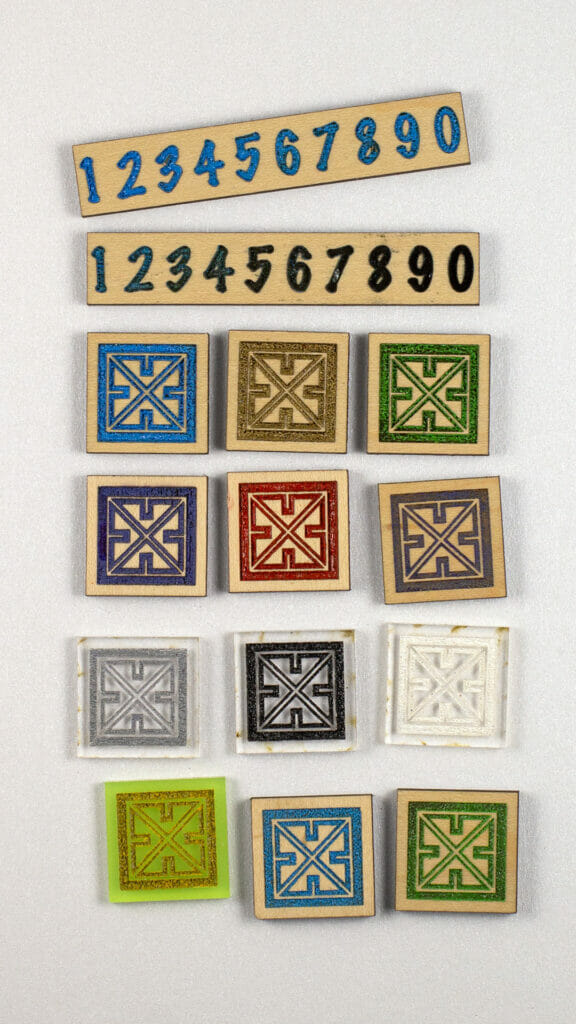
A pretty low power level will fuse the powder coat. A little more than that completely vaporizes it.
Increasing the resolution of the fusing pass helps a little, up to a point. Higher resolution delivers more energy to the fill and, also requires adjusting the power to compensate.
Giving the material a shallower channel improved things some. I switched to using half the standard power for the initial engrave, resulting in engraves about .4mm deep. The final result still had a lot of texture.
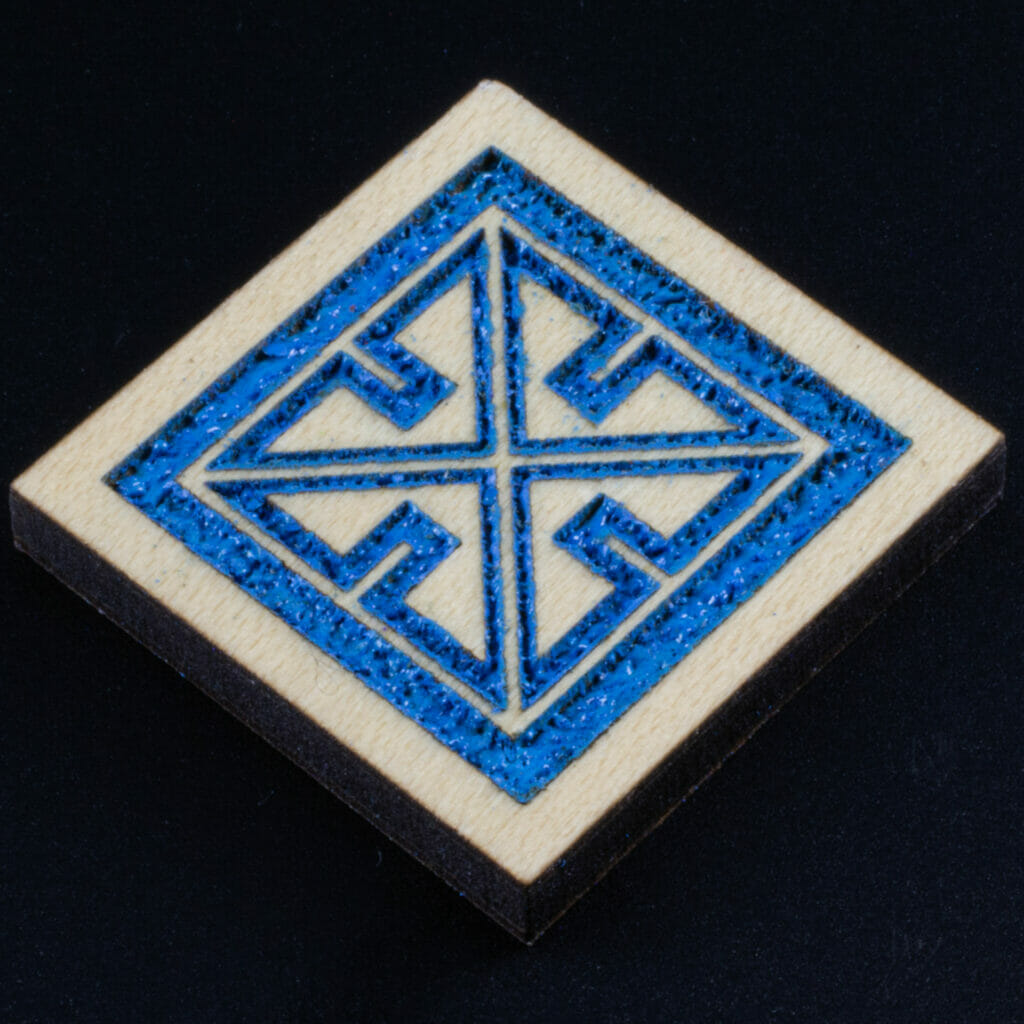
I finally hit on defocusing the laser for the fusing pass. While there is still some texture in the completed fill, it is a lot smoother.
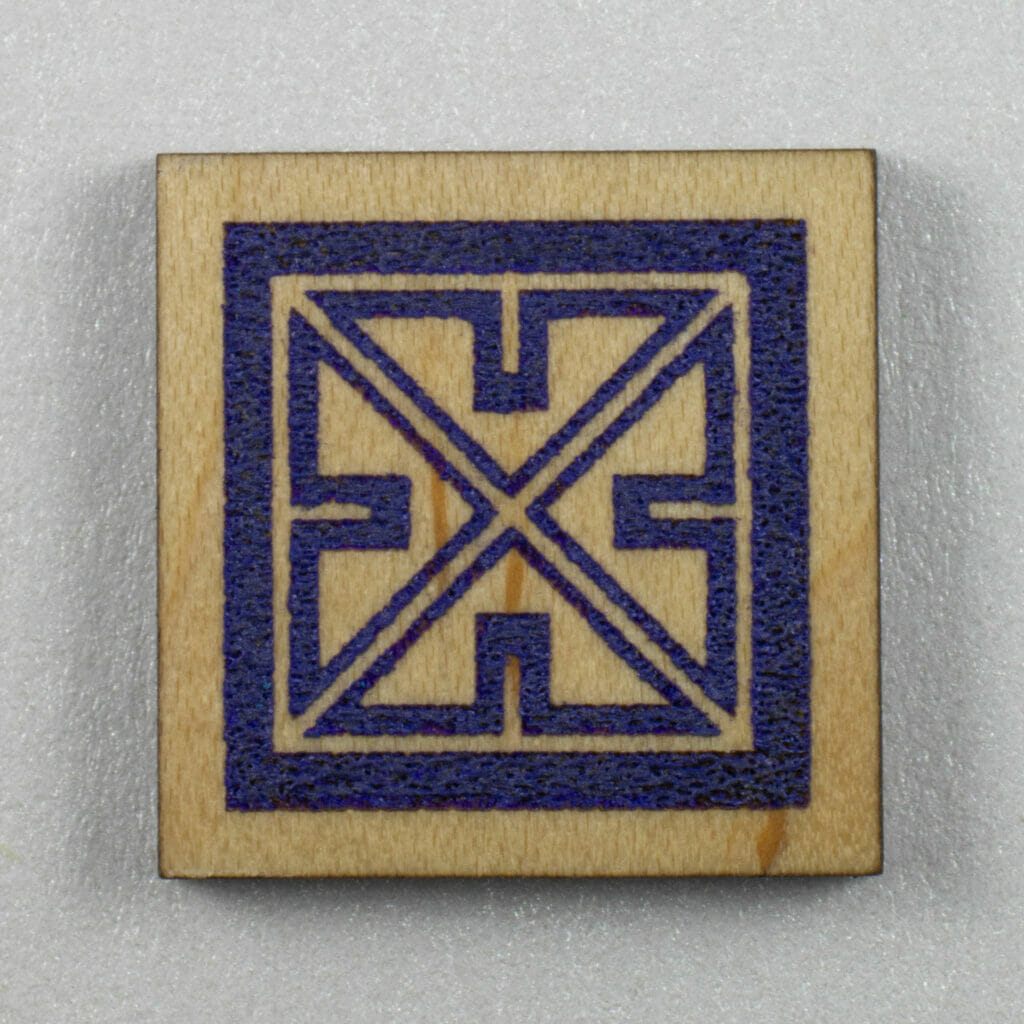
The general technique is:
- Pin the material down so it won’t move
- Do the initial engrave (at half-power for the normal material engrave)
- Dump some powder coat over the engrave
- Tap the powder into the engrave with a square-end paint brush
- Scrape the excess powder level with the surface of the material using something like an aluminum business card
- Run the engrave again with the poweder coat settings
Using masked material simplified clean up on the test pieces. The un-fused powder wipes off fairly easily or, comes off of the ply with a light sanding, though.
This produces a nice opaque saturated fill and, is available in a rainbow of colors and metallics. It also works great on acrylic.
Settings for Glowforge
Half-depth initial engrave (~.4mm)
1000 / 15 / 340 LPI
Focus for 1/8” stock: .2”
One-minute demo video:
Lasering Cactus Leather
I’m always interested in exploring more sustainable materials for making things. Awhile ago, I got a cactus leather sample kit from Desserto and, finally got around to trying it this week.
The samples range in thickness from about half a millimeter to 1.8 millimeters and, come with a different backing materials:
50% polyester / 50% cotton
65% polyester / 35% cotton
100% polyester
100% cotton
100% cotton “infused with cactus”
100% nylon
Some of the backing matches the material for color while others do not.
They also offer a number of different surface finishes.
The bolts are 1.4 meters wide and, run between $22 and $52 USD per meter, depending on the specific configuration.
Vaporized material seems to re-deposit as a sticky goo on the surface. Masking mostly prevents that and, the goo will wash off with some mild soap (I used a foaming hand soap) and a bit of rubbing. Isopropyl alcohol can take it off, too but, will also damage the finish noticeably in some cases.
I found the masked 1mm thick 50/50-blend-backed stuff cut at about 245 speed / 75 power on the Glowforge. I got decent (masked) engraves at 1000/51/270LPI.
Filling engraves with acrylic paint (via Posca-style pens) worked pretty well. The surface also takes paint acceptably. I bet it would screen print nicely.
I came up with a simple card case to make from one of the 10cm by 15cm samples.
I made a one-minute video summarizing all this:
As a bonus for those actually reading this post on my site, here is the pattern for the card sleeve (right-click, save link as to save the SVG).
Walnut Scouting Fleur-de-lis Pins
I had a whole bag of these Scouting fleur-de-lis walnut cut-outs left over from making Cailyn’s Challenge Coins. With a little sanding, some butterfly clasp pin backs, some glue and, some wipe-on poly, I turned a few into these nifty pins.
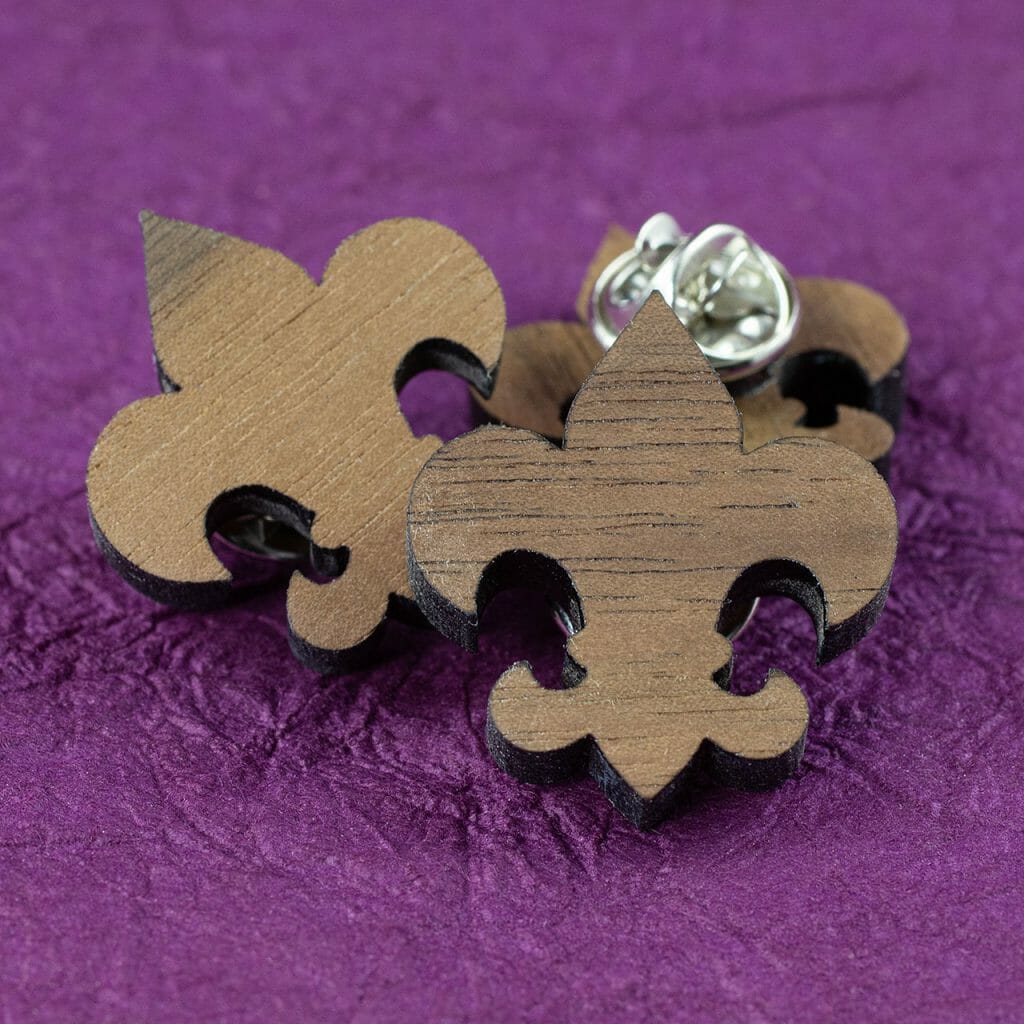
I made a one-minute making-of short:
Butterfly Knotwork Cards
There have been some inquiries about cards printed with some of my Celtic knotwork designs. I made up a small batch with the butterfly printed on some really nice bright white paper with a lovely “touch” (the way the card feels).
These are not Gocco prints, like the ones in the portfolio as those would have to be priced much higher. These look and feel really good, though.
The Knotwork Butterflies are up in the shop now, individually and, in packages of three (for less than the price of two singles).
Cailyn’s Challenge Coins
I made these walnut “challenge coins” for my niece to hand out at her Eagle Scout Court of Honor. A simple project on a tight timeline, I got 80 of these to her in time.
These are 1.5” diameter, cut from 1/4” thick pre-sanded walnut hardwood. I used the jig-in-place technique to align both sides of each coin. After engraving and cutting, they were sanded with 320 – 2000 grit sanding film, cleaned with my mini shop vac, wiped with a microfiber cloth, then coated with wipe-on poly. There was only time for one coat but, it contributed a lot to the final look.
I made a one-minute making-of short:

